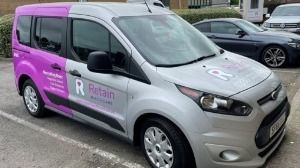Search Jobs:
The tax advantages of approved mileage allowance payment rates for employee business travel in their own vehicles.
- July 26, 2022

The tax advantages of approved mileage allowance payment rates for employee business travel in their own vehicles.
Any employee who uses their own car for work is entitled to mileage allowance. This includes employees who use their car to travel between different job sites, as well as those who use their vehicle for business purposes only. Mileage allowance should be agreed upon in an employee’s contract of employment.
It is not uncommon for employers and employees to be confused about the rules for claiming mileage and fuel costs for business travel, and the amount of tax relief which may be claimed.
Put simply, the amount that can be paid tax-free depends on whether the car is the employee’s own car or a company car. Employees can only claim mileage allowance tax relief where their own vehicle is used for business purposes. If the employee is provided with a company car, a mileage claim can be made for business travel to cover the cost of fuel where this is paid for by the employee. There are different rules if the company pays for the fuel.
Employee’s own car
An employee using their own car for work can claim a mileage allowance from their employer, which is designed to cover the costs of fuel and wear and tear for business trips. The mileage allowance will be tax-free if it does not exceed HMRC’s approved mileage allowance payment (AMAP) rates
If the employer reimburses employees at a higher rate than 45pence per mile, the payments need to be reported on annual forms P11D.
No tax relief can be claimed on payments exceeding the AMAP rates. Anything paid above the approved rates is tax deductible but must be reported on form P11D.
If an employer pays less than the approved rates, the employee can claim income tax relief from HMRC for the shortfall. This can be done via a self-assessment tax return, or by completing form P87.
Benefit of being paid mileage instead of an inflated hourly rate means:
Payroll Tax / National Insurance
An alternative to mileage reimbursements is simply to increase your employee’s wages or salaries to absorb the cost of them driving their own cars. However, if you do this, the income you pay them will be subject to payroll tax, NI and also pension or student loan contributions.
Happy employees
Mileage reimbursements will increase your employee satisfaction level. Mileage reimbursements are a great perk for employees. Employees who are reimbursed for their mileage will be more willing to make business-related errands and employees will feel fairly compensated. They don’t need to worry about accrued mileage costs when you reimburse them. If you choose not to reimburse your employees, they may become disgruntled, which could affect employee engagement.
Summary
In summary the fairest way is to pay mileage for business mileage.
This means that employees are fairly compensated for the business mileage travelled in homecare. Those employees that travel higher mileages will have more wear and tear on their vehicles over a period of time and possibly higher insurance premiums.
Paid business mileage is the most tax efficient way to be reimbursed if using your own car and more money in your pocket on pay day.